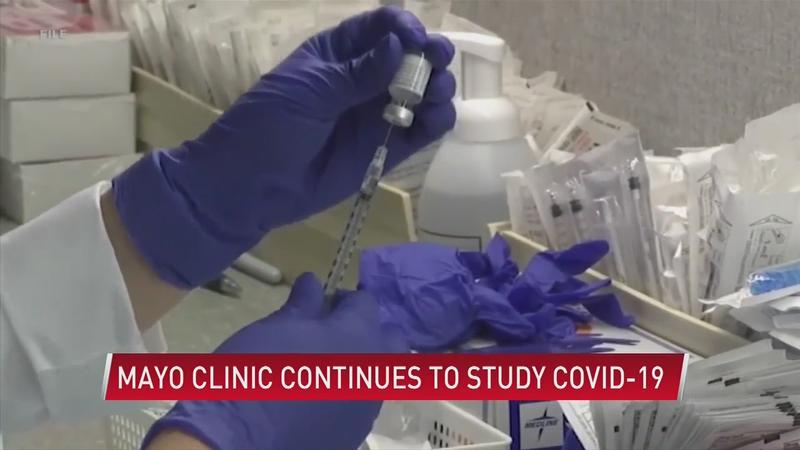New research shows people with psychiatric disorders more at risk for severe COVID-19
(ABC 6 News) – As the county and state monitor the pandemic, scientists and medical researchers continue to learn more about COVID-19. Mayo Clinic released a new study that says younger people with psychiatric disorders are at a higher risk for severe disease or even death from the virus.
Medical experts say it was clear early on that some groups of people are affected by COVID-19 more than others. For example, older people or those with underlying health conditions.
But now health officials say another population is also at risk for severe disease.
"A way that we thought about this is that we were looking kind of for a flag. Which groups of people are going to have problems? And this was kind of our first step in identifying those groups," Jennifer St. Sauver, professor of epidemiology at Mayo Clinic, said.
This research was a partnership between Mayo Clinic, Olmsted Medical Center, Olmsted County Public Health, and Zumbro Valley Health Center.

"Things like effective disorders, severe psychiatric conditions, severe developmental disorders – we would never really expect that those would put people at an especially high risk of a more severe outcome," Sauver said.
But according to this new research they do.
"To be honest we were a little puzzled by this but again it was a flag and a marker for this group that we need to look at more carefully," Sauver said.
While medical research points to this particular group, determining why they are at a higher risk isn’t as clear.
"We haven’t been able to tease that out yet," Sauver said.
One theory medical experts are leaning toward is congregated living. For example, living in group mental health homes where spread could be higher. Another reason could be the treatments and medicines that could suppress their immune system. As research continues, however, experts want people with these severe disorders to understand they could be at a higher risk and must proceed with caution.
"When I personally look at these data, If I have these factors and characteristics I say ‘oh ok you know what I’m in this group – that bumps me up a little bit and so you know what I’m gonna be a little bit more cautious,’" Sauver said.
Zumbro Valley Health Center was another partner in this research. They say oftentimes severe mental illness is associated with other physical health concerns like high blood pressure or cholesterol. Which can cause a more severe reaction to COVID-19.